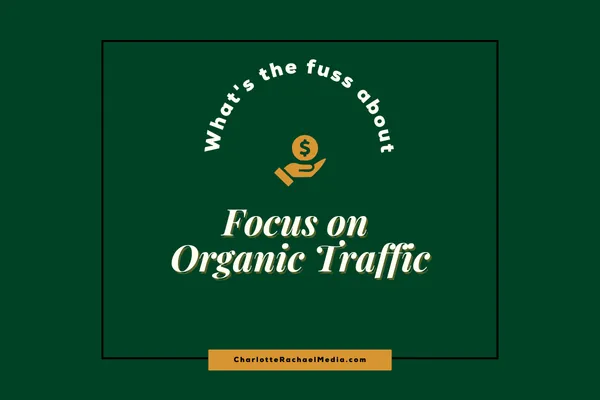

Focus on Organic Traffic: Why It's Crucial and How It Supports Long-Term Growth
Welcome to Week 2 of our series on traffic generation strategies! Last week, we explored the fundamentals of traffic generation, emphasizing the importance of both organic and paid strategies. This week, we'll take a deep dive into organic traffic strategies, focusing on Search Engine Optimization (SEO), content marketing, and social media engagement. These techniques are crucial for long-term growth, building brand authority, and attracting a steady stream of qualified leads to your sales funnel.
Recap of Week 1's Overview of Traffic Generation
In Week 1, we covered the foundational concepts of traffic generation, highlighting the significance of driving targeted visitors to your website through organic and paid methods. Organic traffic, in particular, offers sustainable growth and cost-effectiveness, making it an essential component of any comprehensive digital marketing strategy.
Focus on Organic Traffic: Why It's Crucial and How It Supports Long-Term Growth
Organic traffic refers to visitors who find your website through unpaid channels like search engines, social media, and referrals. Unlike paid traffic, which requires ongoing investment, organic traffic is sustainable and accumulates over time. By focusing on organic strategies, businesses can build trust, authority, and a loyal customer base without relying solely on advertising budgets.
Search Engine Optimization (SEO)
Fundamentals of SEO: Keywords, On-Page Optimization, Backlinking
SEO is the practice of optimizing your website to rank higher in search engine results pages (SERPs) for relevant keywords. Key elements include:
Keywords: Researching and strategically using keywords that your target audience is searching for.
On-Page Optimization: Optimizing meta tags, headings, image alt text, and content structure to improve readability and relevance.
Backlinking: Earning quality backlinks from reputable websites to enhance your site's authority and credibility.
Strategies for Improving Website Visibility and Ranking on Search Engines
Effective SEO strategies involve:
Conducting comprehensive keyword research using tools like Google Keyword Planner and SEMrush.
Creating high-quality, informative content that answers user queries and addresses pain points.
Building a robust internal linking structure to improve navigation and distribute link equity across your site.
Content Marketing
Importance of High-Quality Content in Driving Organic Traffic
Content marketing focuses on creating valuable, relevant content to attract and engage your target audience. Benefits include:
Establishing thought leadership and expertise in your industry.
Increasing brand visibility and organic search rankings through regularly updated content.
Providing valuable resources that address audience needs and drive conversions.
Types of Content That Attract and Engage Your Target Audience
Effective content types include:
Blog Posts: Informative articles that answer common questions and provide actionable insights.
Videos: Engaging visual content that educates, entertains, or demonstrates products and services.
Infographics: Visual representations of data or processes that simplify complex information for easy consumption.
Social Media Engagement
Leveraging Social Media Platforms to Build Brand Awareness and Drive Traffic
Social media platforms offer powerful tools for engaging with your audience, promoting content, and driving traffic to your website. Best practices include:
Consistently sharing valuable content that resonates with your audience's interests and challenges.
Encouraging interaction through likes, comments, shares, and direct messages to foster community and brand loyalty.
Utilizing social media analytics to track performance, optimize campaigns, and identify opportunities for growth.
Metrics and Outcomes Achieved Through Organic Traffic Strategies
Metrics to track include:
Organic traffic growth and website rankings.
Engagement metrics such as social media shares, comments, and click-through rates (CTR).
Conversion rates and lead generation from organic search and content efforts.
Conclusion
In conclusion, mastering organic traffic strategies is essential for establishing a strong online presence, attracting qualified leads, and nurturing customer relationships over time. SEO, content marketing, and social media engagement offer sustainable growth opportunities that complement paid advertising efforts and enhance overall digital marketing effectiveness.
Summary of Week 2's Key Takeaways
Organic traffic is essential for long-term growth, building brand authority, and attracting qualified leads.
SEO involves optimizing your website and content to rank higher in search engine results pages.
Content marketing and social media engagement are effective for engaging audiences and driving organic traffic.
Tease for Week 3: Deep Dive into Paid Advertising Strategies
Next week, we'll explore the world of paid advertising strategies, including PPC, social media ads, and display advertising. Stay tuned to learn how to leverage paid ads to amplify your traffic generation efforts and achieve your business objectives!
